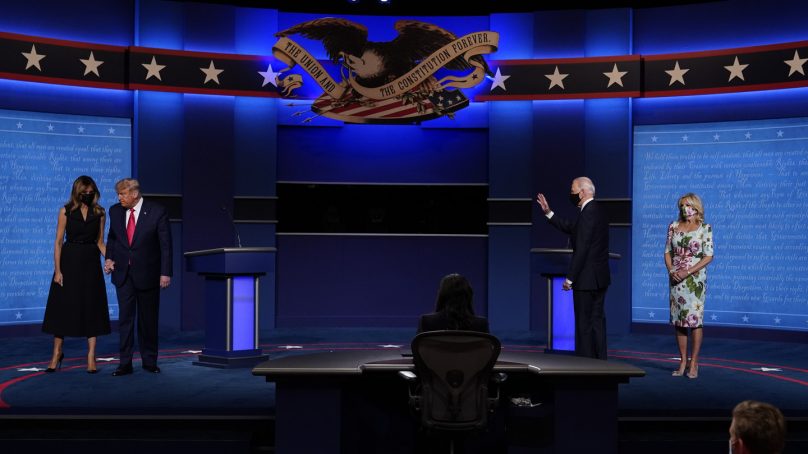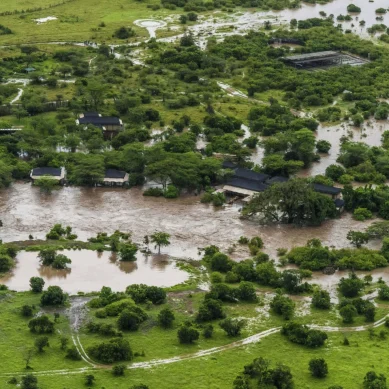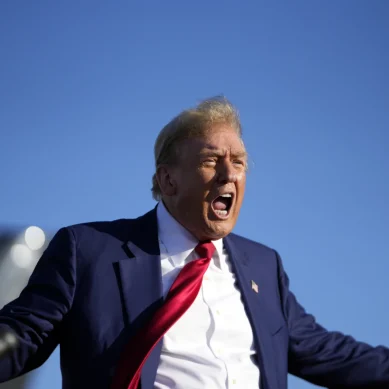
The US House of Representatives Select Subcommittee on the Coronavirus Pandemic invited the editors of three major science journals to testify on the relationship between their publications and the federal government.
Amid controversy over censorship in peer-reviewed journals, the editors of three major science journals last week received invitations to testify before the US House of Representatives Select Subcommittee on the Coronavirus Pandemic on the relationship between their publications and the federal government.
Representative Brad Wenstrup (Republican-Ohio), chair of the subcommittee, sent the letters to the editors-in-chief of The Lancet, Nature and Science, requesting their testimony for an April 16 hearing titled “Academic Malpractice: Examining the Relationship Between Scientific Journals, the Government, and Peer Review.”
According to Wenstrup’s office, the hearing seeks to examine “whether these journals granted the federal government inappropriate access into the scientific review or publishing process,” noting that the journals had previously communicated with Drs Anthony Fauci, Francis Collins and other health officials.
Nature Medicine published the now infamous “Proximal Origin” paper in March 2020. The paper, which claimed Covid-19 had zoonotic or natural, origins was subsequently used in attempts to censor proponents of the “lab-leak theory” of the virus’s origin.
In a press release, Wenstrup said: “Millions of people worldwide relied on Science, Nature, and The Lancet to provide scientifically accurate and impartial research during the Covid-19 pandemic.
“However, documents show that the federal government may have censored and manipulated the sacred scientific review processes at these journals to progress their preferred narrative about the origins of Covid-19.”
Cardiologist Dr Peter McCullough welcomed the announcement of the hearing. He told The Defender:
“I used the term ‘academic fraud’ in my November 19, 2020, Senate testimony. During the pandemic, for the first time in my career, I saw fraudulent papers published and valid ones retracted after full peer review.
“Publication actions always went in a consistent theme of duality: suppression of early therapeutics for acute Covid-19 and promotion of mRNA Covid-19 vaccines as safe and effective … Manuscripts demonstrating successful home treatment strategies were impeded, and above all, manuscripts disclosing Covid-19 vaccine injuries, disabilities and deaths were swept under the rug.”
Several experts said scientific journals censored non-establishment views but regularly published “fraudulent” papers.
Epidemiologist and public health research scientist M. Nathaniel Mead told The Defender: “We have faced an unprecedented level of scientific censorship in the past four years, and this has created a climate of fear for the medical-scientific community, compelling many researchers and scholars to practice self-censorship.
“This has fostered a pervasive hesitancy to broach certain topics, even in venues or contexts that are theoretically supportive of free expression. As a result, dissenting viewpoints that could enhance scientific dialogue are stifled.”
According to molecular biologist Richard Ebright, “Science has published two patently unsound and presumably fraudulent papers on the subject of Covid-19 origins, has not retracted these papers, has refused to open inquiries into those papers, and has used its news division to promote the false narrative that science favours a natural origin of Covid-19 and to dismiss contrary evidence and contrary views.”
Mark Blaxill, chief financial officer of the Holland Centre, a private autism treatment center, said, “Policymakers and legislators often defer to scientists, ‘experts’ and the published record. To the extent that the record is corrupted by political forces that lean to one side of legitimate public policy disputes, the journals are tilting the playing field in favour of powerful interests.”
This has resulted in “the increasing politicisation of science,” as a result of which “the body of published science is becoming increasingly weaponized,” Blaxill said.
Similarly, journalist Paul D. Thacker, publisher of The Disinformation Chronicle, said he hopes “Congress has something better planned than just parading the scientists running these journals before the public and berating them for being corrupt, because documents I’ve reported on show these journal editors have no shame.”
Much of the subcommittee’s focus has centred on “The proximal origin of SARS-CoV-2.” Published on March 17, 2020, in Nature Medicine, the paper concluded that a lab leak was not “plausible.” It soon became “one of the single most impactful and influential scientific papers in history.”
A House investigation and Freedom of Information Act requests later revealed that a month before publication, Fauci and Collins reviewed drafts of the paper. A July 2023 report by the subcommittee found that Fauci, key virologists and government officials used the paper to suppress the Covid-19 lab-leak theory.
Speaking on Fox Business’ “Varney & Co.” last week, Wenstrup said the editors-in-chief to whom he sent letters “should want to weigh in on this because they published articles that seem to want to ignore [the lab-leak theory].”
“When anybody had the hypothesis of it being a lab leak theory … they were scrutinized, they were canceled, they were put down,” Wenstrup added. “A published article doesn’t mean that it’s been peer-reviewed and that it’s been going through the scrutiny that it should take from scientists … Just look at ‘Proximal Origin.’”
During an April 17, 2020, White House Coronavirus Task Force press briefing, Fauci told reporters, in the presence of then-President Donald Trump, “There was a study recently that we can make available to you” which showed that Covid-19 “is totally consistent with a jump of a species from an animal to a human.”
“Fauci helped place the ‘Proximal Origin’ paper and then lied about it right under the nose of the president,” Thacker said. “He was thanked by [virologist] Kristian Andersen for his advice in an email, and then he wants to say he had no role in it.” Wenstrup made a similar observation on “Varney & Co.”:
“‘Proximal Origin’ basically was written by people that were prompted to write it by Dr Fauci. And all they really talked about was the possibility [that Covid-19] came from nature. If you read this article, it’s full of assumptions and what-ifs, and it completely ignores the lab leak theory.
“And internally, in their discussions, the same authors are saying, ‘Well, we can’t rule out that this came from a lab. It certainly looks engineered.’ So, there’s a problem with using these scientific journals as a be-all end-all.”
Earlier this year, Fauci sat for two days of closed-door interviews with members of the House, during which he reportedly responded with “I don’t recall” over 100 times.
For Thacker, the focus on the “Proximal Origin” paper ignores two other influential scientific papers that also were used try to discredit the “lab-leak theory.”
“This committee has been overly obsessed with ‘Proximal Origin’ … These virologists conspired to launch three different papers into the academic literature. It wasn’t just one paper. You don’t run a propaganda campaign off of just one paper,” Thacker said.











